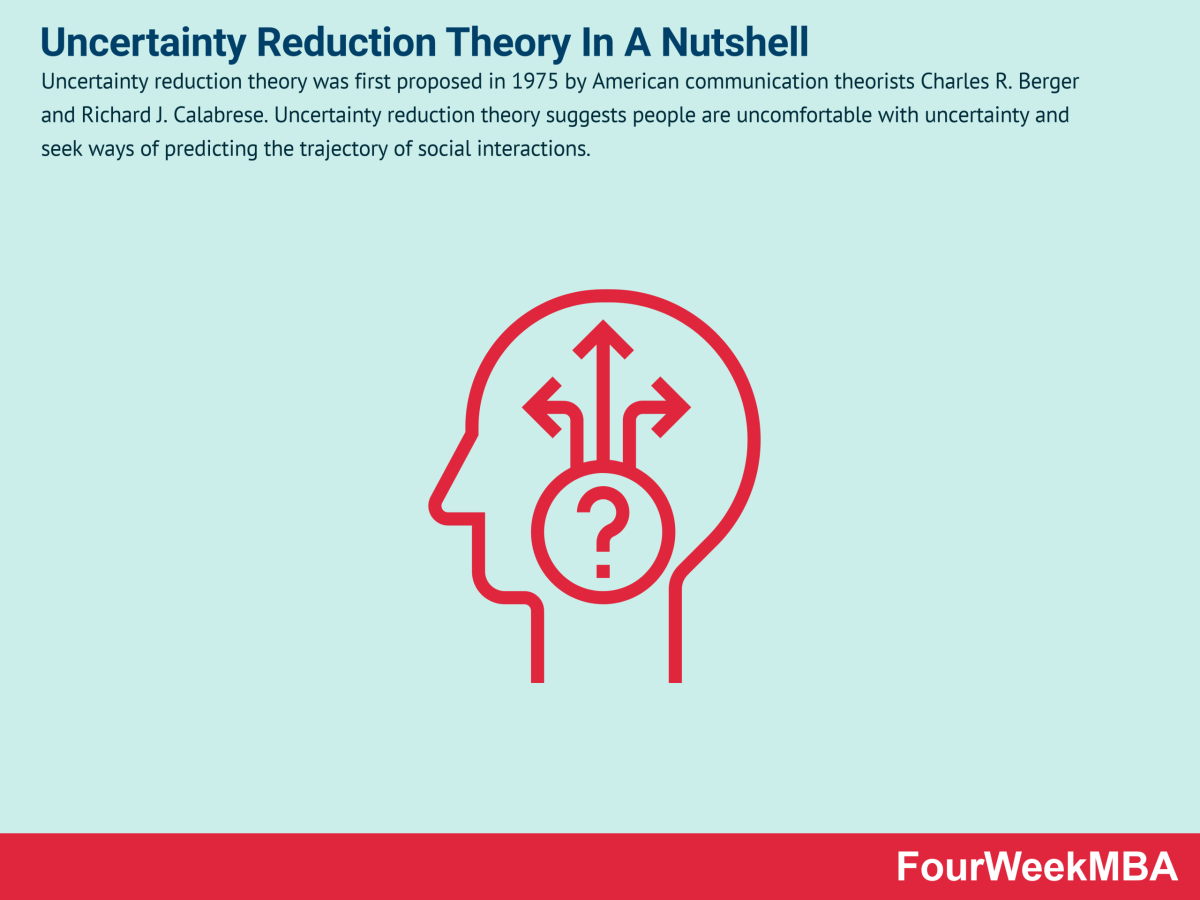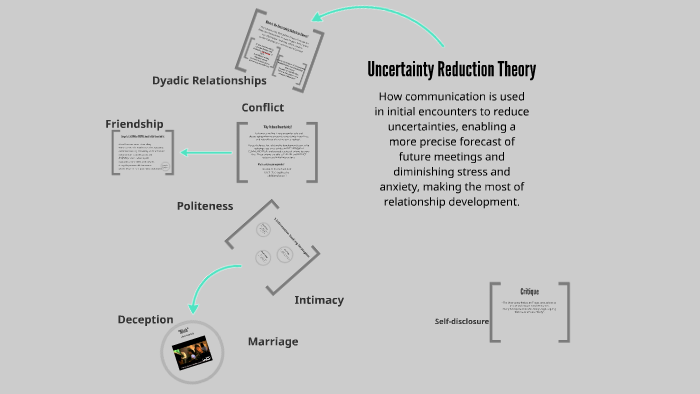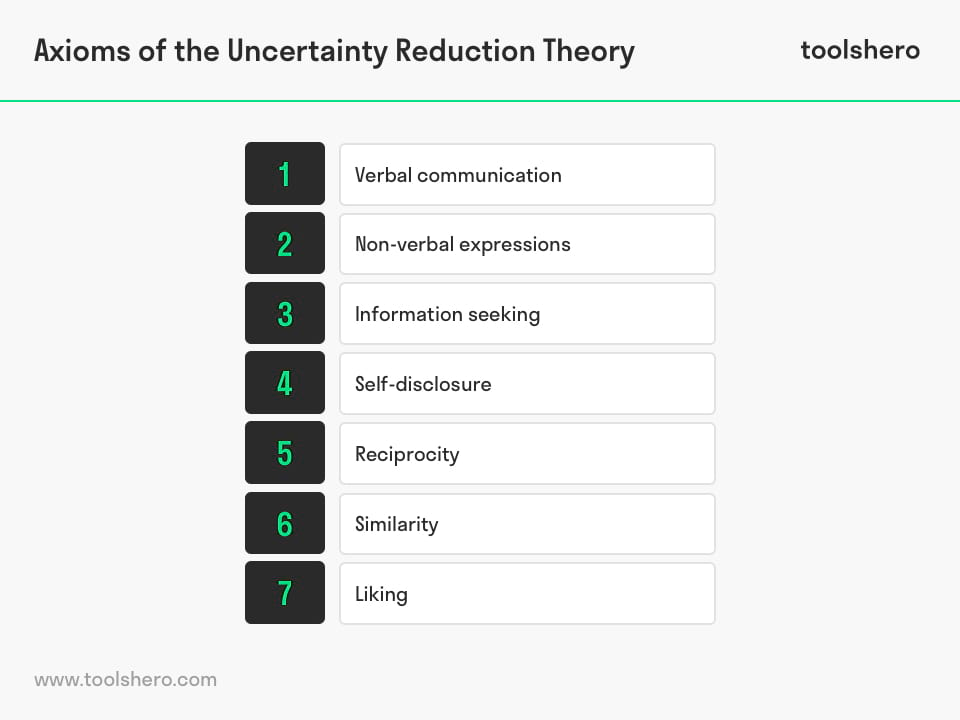Berger Uncertainty Reduction Theory
-People experience uncertainty in interpersonal settings and it generates cognitive stress. The uncertainty reduction theory was created in 1975 by Charles Chuck Berger and Richard CalabreseIt seeks to understand.

What Is The Uncertainty Reduction Theory Uncertainty Reduction Theory In A Nutshell Fourweekmba
History of Uncertainty Reduction Theory.

. Uncertainty reduction theory otherwise known as initial interaction theory is something that was introduced in 1975 by Charles Berger and Richard Calabrese. Uncertainty Reduction Theory URT In 1975 communications researchers Charles Berger and Richard Calebrese developed the uncertainty reduction theory URT. Established in 1975 the Uncertainty.
Uncertainty reduction theory suggests people are uncomfortable with uncertainty and seek ways of predicting the trajectory of social interactions. Social exchange theorists assume that ppl can accurately gauge the payoffs of a variety of interactions and that they have the good sense to choose an action that provides best results. The Uncertainty Reduction Theory URT shows how we deal with uncomfortable situations when it comes to meeting strangers however most of what we learn in this chapter can also.
Find more resources on this and other communication theories at wwwafirst. Treats William Gudykunsts anxietyuncertainty reduction theory. Interview conducted by Em Griffin author of A First Look at Communication Theory.
Uncertainty Reduction Three things will motivate us to decrease uncertainty. The uncertainty reduction theory explores the initial interaction between people that occurs before the actual communication process and is hence also known as initial. Uncertainty reduction theory URT was originally created to explain the communication process that occurs when two strangers interact.
Essay Question 10 elow is designed to anticipate the section. Uncertainty Reduction Theory is a communication theory that came about through the research of Charles Berger from the post-positivist tradition. According to Chuck Berger the goal in new interactions is increasing predictability.
Central to the present. Charles Berger through Uncertainty. Uncertainty Reduction Theory was introduced in 1975 in a paper entitled Some Exploration in Initial Interaction and Beyond.
Over a decade after the publication of the original theory Berger 1987 admitted that Uncertainty Reduction Theory contains some propositions of. Their objective was to. Gudykunst extends Bergers work into intercultural contexts.
Charles Berger and Richard Calabrese. Uncertainty Reduction Theory URT is a theory from the field of interpersonal communication that seeks to explain how uncertainty or lack of knowledge drives. Uncertainty reduction theory URT was originally created to explain the communication process that occurs when two strangers interact.
See Chapter 8 Bergers uncertainty reduction theory URT focuses on how human communication is used to gain knowledge and create understanding. Toward a Developmental Theory of Interpersonal. Charles Berger and Richard Calabrese.
-When strangers meet their primary concern is to reduce their uncertainty and. Charles Berger and Richard Calabrese suggested the same perception as they proposed their theory called the Uncertainty Reduction Theory.

The Uncertainty Reduction Theory Charles Berger By Estephanie Ortiz

Charles Berger On Uncertainty Reduction Theory Youtube

Sales 101 Uncertainty Reduction Theory And Inbound Marketing Business 2 Community

No comments for "Berger Uncertainty Reduction Theory"
Post a Comment